- Home
- Rick Mofina
Vengeance Road Page 4
Vengeance Road Read online
Page 4
“Hello, are you there, Ashley?”
“I’m here, Jack. What is it?”
“Can you check a name for me? See if they’re a subscriber? Styebeck, Karl Styebeck. Karl with a K and last name spelled S-t-y-e-b-e-c-k.”
“You know it’s against policy for us to share the paper’s subscriber list.”
“I completely understand. But it’s for a story.”
Gannon heard an annoyed sigh then typing on her keyboard.
“I cannot tell you that yes, we do have a subscriber by that name and the number and address are as follows.”
Gannon wrote the information down.
“I appreciate this,” he said.
“I’m sure you do.”
Gannon called Karl Styebeck’s home. The phone was answered by a woman.
“No, I’m sorry, Karl’s not here at the moment.” She was pleasant. “He’s coaching the game at the Franklin Diamond. May I take a message?”
“No, no message, thanks.”
Gannon did not identify himself.
He made a copy of Styebeck’s photo from a recent profile of him in one of the community newspapers then drove to Ascension Park.
It was an established middle-class neighbourhood of streets lined with mature trees that arched over well-kept homes. Franklin Diamond encompassed a playground, basketball and tennis courts that were busy with activity. The bleachers at the ball diamond were sprinkled with parents cheering the players of a game in progress.
He neared the benches, getting close enough to scrutinize the coaches until he was satisfied he’d locked onto Styebeck. The cop was leaning against a chest-high chain-link fence, drinking from a can of soda, watching his players in the field.
“Let’s go, Bobbie!” he shouted to his pitcher. “Big swinger!”
Gannon sidled up to him then waited for a lull in the game. Styebeck pulled a rolled roster from his rear pocket when Gannon interrupted.
“Excuse me, Detective Styebeck?”
Deep-set intelligent eyes turned on Gannon from a face as cold and still as a frozen lake. The man was in his early forties, stood an inch or so over six feet. He had a medium build with firm, large upper chest and arms. He wore a ball cap, baseball shirt and jeans.
“Detective Karl Styebeck?”
Styebeck nodded.
“Jack Gannon from the Buffalo Sentinel.”
“The Sentinel? You guys never cover our games.”
“I’m not here for that, sir.”
Gannon nodded to an empty picnic table by a tree, thirty yards away from the first-base line.
“Can we go over there for a moment?” Gannon asked.
“I’m kind of busy. What’s this about?”
“Bernice Hogan.”
“You better show me some ID.”
Gannon produced his press ID. Styebeck examined it, gave it back, then went to the picnic table with Gannon.
“What do you want?” Styebeck folded his arms across his chest.
“I need to ask you a few questions for the record.”
Gannon extended his small recorder.
Styebeck looked at it but didn’t move.
“Sir, I’d like your response to a story we’re running tomorrow that will name you as a suspect in the murder of Bernice Hogan.”
Styebeck’s eyes narrowed.
“What? Is this some kind of joke?”
“I understand that you are a suspect in the murder of Bernice Hogan, the nursing student whose body—”
“I know who she is. I’m working the case with the state police. I don’t know where this is coming from, but your information is unmitigated bullshit.”
“I’m going to quote you, sir.”
Styebeck crushed his soda can in his fist just as two boys wearing jerseys emblazoned with Kowalski’s Towing, ran to them.
“Coach!” one boy said. “We’re up! Who bats?”
Styebeck glared at Gannon.
“T.J. is up, Dallas is on deck.”
“Coach, you’re bleeding!”
The twisted metal had cut into Styebeck’s fingers. Blood dripped from them, dampening the earth. Gannon looked at it, then at Styebeck, catching something cold threading across his eyes.
“I’m fine, fellas. Let’s get back to the game.”
Styebeck held back, leaned into Gannon and dropped his voice. “You better watch yourself, asshole.”
Styebeck returned to the game. Gannon stood alone, puffed his cheeks and exhaled slowly.
Then he checked his recording and walked to his car.
When he’d returned to the Sentinel, Tim Derrick was collecting his briefcase and throwing off to Ward Wallace, the night editor.
Gannon went to them and told them what he had.
“The prime suspect in Bernice Hogan’s murder is a detective working on the investigation.”
Wallace and Derrick exchanged glances.
“Christ, that’s a helluva goddamn story.” Wallace waved over Ed Sikes, the front-page editor. They used the empty city editor’s office for an impromptu conference.
Wallace removed his glasses, tapped them on his chin as other deputy and night editors joined them.
“This is dynamite,” Derrick said. “How’d you get it?”
“I picked it up when I went out to Clarence Barracks. Then I went to a good source who confirmed it.”
“Who’s your source?” Sikes said.
“They’re inside the investigation. I can’t name them.”
“Why not?”
“That was the deal.”
“Policy requires you give us a name, Jack. Even if we don’t use it,” Sikes said.
“I know, but this is deep inside. Come on. I gave my word and this is exactly how we broke the jetliner story. We were tipped by an unnamed source.”
“You also got the document that nailed it,” Sikes said. “Got any paper on this tip? A warrant? A police report? A memo?”
“No, not quite.”
“What do you mean, ‘not quite’?”
“My information is solid.”
“Jack, is your source on this information a cop?” Wallace asked.
“Yes.”
“With the New York State Police?”
“My source is a cop inside the investigation. That’s as far as I want to go. I gave my word.”
“This story’s huge,” Derrick said. “Who else did you call?”
Gannon told them.
“Christ.” Wallace ran his hand through his hair. “We need a story like this. He’s got the investigator on the record, and the suspect.”
“Alleged suspect,” Sikes said. His eyes were like black ball bearings as they bored into Gannon. “You trust your source with everything, Jack? Because with this kind of story, if you’re wrong, we could all pay dearly.”
Gannon took stock of the faces staring at him. Beyond the office, a few reporters raised their heads to look at the sombre group, curious about what was happening.
“I stand by my story.”
Sikes kept Gannon in his gaze for a long time.
“We’re taking a risk here.”
“I trust my source completely.”
“Write it up,” Sikes said. “I’ll take it for front. Better find a picture of Karl Styebeck.” Then he pointed his finger at Gannon. “You’d better be right about this.”
8
That night in a quiet neighbourhood of Ascension Park, Karl Styebeck sat alone before his television.
It was the only light in his darkened living room. Flickering images lit up the creases of his taut face. As he surfed from channel to channel, he chewed on his thumb while his wife descended the stairs after checking on their son, who’d gone to bed.
“Goodness, why are you keeping it so dark in here?” She swept into the room and switched on a light.
“Keep it off, Alice.”
“Why?”
“Just keep it off.”
“Fine, you vampire.” She smiled and switched the lig
ht off. “Don’t you think you’re taking this a little too seriously, Karl?”
“Taking what too seriously?”
“You lost the game and some of the parents got upset. Taylor told me what happened at the diamond.”
“No. It was a good game, could’ve gone either way. Nobody got upset.”
Alice retrieved her needlepoint from the sofa and tapped his shoulder.
“I’m going to need some light, here.” She switched on a low-wattage table lamp and he didn’t object. “Would you find something to watch. I hate it when you channel hop. Men. Sheesh.”
Styebeck landed on a local channel just as it offered a brief news update between commercials, reporting, “No new developments on the murder of Bernice Hogan, the former nursing student from Buffalo State.”
“That’s such a sad case,” Alice said. “Well, Taylor told me some guy you were talking to at the game made you mad.”
“No, it’s nothing.”
“Is it work? You’re awfully pensive these days.”
“Something like that. I’m getting a drink, you want anything?”
“Some water would be nice, thanks.”
In the kitchen Styebeck poured himself a glass of orange juice, stood at the window over the sink, looked out at his yard and continued ruminating.
Immediately after that reporter, Gannon, had confronted him, Styebeck made a round of calls on his cell phone to detective friends. It was odd. Few of them had time to talk, and those that did seemed cagey.
“Yeah,” a cop from Erie County told him. “There was a joint-forces case-status meeting today out at Clarence Barracks. Hush-hush. Mike Brent was running it. You didn’t miss much, just a bunch of wild-ass theories about suspects.”
“Any names come up?”
“Names? No, Karl, they had no names on the board. As far as I’m concerned, Brent’s a prick. They’ve got no evidence and the way he’s headed, he’ll never clear this. Sorry, Karl, I have to go.”
Why hadn’t he been called to that meeting?
Now, as he finished his glass, Styebeck asked himself again.
Why wasn’t he invited to that meeting?
He didn’t know Brent, but he’d talked to him and his partner earlier about his theories on the Hogan homicide. They’d come to him because he had a lot of confidential informants downtown.
That’s what they said.
Then this reporter, Gannon, bushwhacks him with this crazy allegation.
Where the hell was that coming from? What did he know?
“Oh, Karl, I forgot to tell you.” Alice entered the kitchen, startling him. “Some guy called for you when you were out.”
“Who?”
“I don’t know. He didn’t say. He didn’t leave a message and the number didn’t come up. I figured it had something to do with the game and told him you were at the park.”
He said nothing.
It was likely Gannon, he thought. Well, he wasn’t worried. There’s no way the Sentinel would run a story based on that B.S. he was peddling. No one could possibly know what he knew about Bernice Hogan’s murder.
“Karl, is something going on? We’ve had quite a number of strange calls over the last few weeks. And you’ve been so edgy. Is there something you’re not telling me?”
Styebeck turned away from his wife and went back to searching the night through the kitchen window.
“No, Alice. It’s all work related. Everything’s fine.”
9
Jolene Peller surfaced through the haze of semiconscious-ness.
A low monotonous rattling sounded in her head as memory and awareness fell upon her in ominous drops.
Where was she? What happened?
Bernice.
She’d had a bad feeling and had gone to help Bernice; had followed her into the night where she’d heard pleading.
Bernice begging in the confusion then a scream.
The man.
Jolene had glimpsed him in the chaos and he saw her; hit her with a blazing light, blinding her, locked onto her, chased her, hunted her.
She ran but could not outrun the darkness.
It was a nightmare. She’d had a nightmare. Okay, then wake up.
Wake up!
SHE WAS AWAKE!
Jolene’s heart thumped as her memory gave way to an onslaught of crushing fear.
What was happening?
Bernice? What happened to Bernice?
What’s going to happen to me?
The blood rushing in her ears roared with the droning.
What was that noise?
Why was this happening?
Why her?
The air smelled of old wood, cardboard and something foul. Oh God. Oh God. She trembled, her stomach roiled. She kept her eyes shut tight, fought to stem her mounting hysteria and clear her mind.
Think.
You’re alive.
You’ve got to get out of this.
She was lying on something padded. A disgusting-smelling mattress. Her tongue burned with an awful aftertaste and her jaw ached. Something between her upper and lower teeth was splitting her mouth open. It felt like a leather belt strapped so tight to her head her eyes hurt.
She raised her hand to try to relieve the pressure, but her hands were welded together by something cutting into her wrists. Some sort of binding.
Breathe.
The stench of the air was choking.
Jolene clawed at the buckle at the back of her head in vain. Her nose was clear. If she stayed calm she could breathe.
Did she dare open her eyes?
She had to.
Okay. All right. Easy. Breathe.
She opened them wide to absolute blackness.
She raised her hands to her face and saw nothing. It was as if she’d been disembodied.
As if she were dead.
She was terrified of the dark.
Terrified of being buried alive.
Overcome with vertigo, she was consumed by a sickening sense of whirling and falling. A muffled whimper escaped from deep in her throat and echoed in the silence.
Breathe, she told herself. Stay calm.
You’re alive.
If you’re alive, you can fight to survive.
Be strong. Don’t cry. Fight.
The earth shifted.
Jolene was jolted across the mattress. Humming, hissing and, now, mechanical grinding grew louder.
What was happening?
The world started moving.
Jolene’s dark prison was now mobile and gathering speed.
10
The next morning, victory called out to Gannon from his front-page story.
On every street corner with a Buffalo Sentinel newspaper box, his exclusive took up six columns on page one, above the fold, under the headline:
Hero Cop Suspected in College Student’s Murder
This was a clean kill against the competition, the Buffalo News. Those guys had squat. Looking at the bank of news boxes while waiting for a downtown traffic light to change, he savored the rush of pride.
Don’t get cocky. Glory was fleeting in this business, where you’re only as good as your next story.
But a cop? Man, he’d hit this one out of the ballpark.
His story was the line item in the Sentinel’s morning edition. It went to homes, stores and news boxes across Buffalo, across Erie, Niagara and eight other counties; everywhere the Sentinel battled the News for shrinking readership. It also anchored the Sentinel’s Web site, where most people went for their news these days.
He had scored. No doubt about it. Buffalo radio and TV morning news led with the story, wire services picked it up.
It was the win he needed.
The light changed and Gannon continued through traffic, turning into the Sentinel’s parking lot, concentrating on the reason he’d come in early today: to work on a follow-up. Beating the competition always meant they’d come back at you big-time.
He was not going to lose this one.
He grabbed a paper from the security desk in the lobby before stepping into the elevator. Ascending alone, he studied the front-page photo of Styebeck’s handsome hero face next to one of Bernice.
What a heartbreaker.
During his years on the crime desk, he’d encountered tragedies every day: the deaths of children, school shootings, gang murders, fires, wrecks, calamities, manifestations of evil in every form. He went at things wearing emotional armor.
But something about Bernice Hogan’s tragedy got to him.
Looking at her face, he vowed to see that, in death, she received the respect that had eluded her in life.
The elevator stopped and he went to the newsroom kitchen for coffee.
The best follow-up to this morning’s exclusive would be a feature on Styebeck. He’d go into Styebeck’s life, his upbringing and how he came to be a hero cop and suspected killer. Maybe he’d call some criminal profilers, talk about cases of murderers leading double lives.
He’d need a few days but it might work.
“You’re in early.” Jeff kept his eyes on his computer screen where he was playing solitaire.
“Anything going on out there?”
“It’s deadsville, Jack. Nice hit on the cop. You blew away the Buffalo Snooze.” Jeff nodded to the managing editor’s glass-walled office across the newsroom. “Nate’s been trying to reach you.”
“About what?”
“Don’t know. Can’t be good. I’d give it a minute.”
Gannon didn’t like the scene he saw playing out in the office. Nate Fowler kept jabbing his finger at Ward Wallace who kept throwing up his hands. Their voices were raised but Gannon couldn’t make out what they were saying. As night editor, Wallace never came in at this hour unless there was a problem.
A serious problem.
“What’s going on in there?” Gannon set his coffee down. “What’s Wallace doing here?”
“Beats me. Oh, and there’s a lady here to see you. I told her you usually get in later, but she’s been waiting in reception for about an hour.”
“She say what she wants?”
“No. I’ll get her.”
Gannon did a quick check of e-mails and sipped some coffee before he saw Jeff direct a woman in her fifties toward his desk.
She wore no makeup, had reddened eyes and unkempt hair. Her sweater and slacks had frayed edges. She held a slim file folder, her fingernails were bitten.

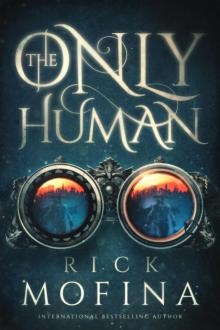 The Only Human
The Only Human Tom Reed Thriller Series
Tom Reed Thriller Series![[Tom Reed and Walt Sydowski 04.0] No Way Back Read online](http://i1.bookreadfree.com/05/tom_reed_and_walt_sydowski_04_0_no_way_back_preview.jpg) [Tom Reed and Walt Sydowski 04.0] No Way Back
[Tom Reed and Walt Sydowski 04.0] No Way Back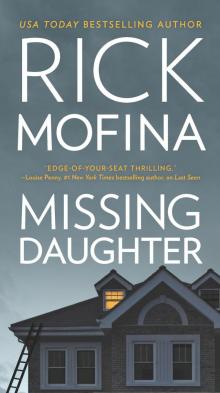 Missing Daughter
Missing Daughter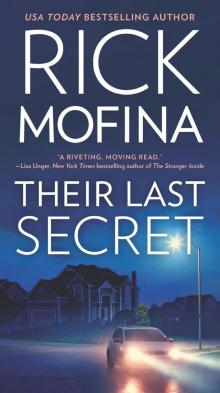 Their Last Secret
Their Last Secret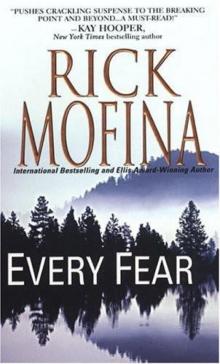 Jason Wade - 02 - Every Fear
Jason Wade - 02 - Every Fear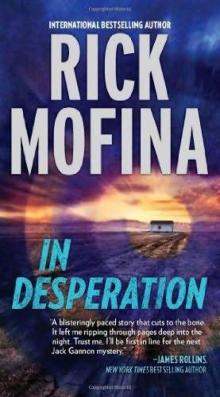 In Desperation
In Desperation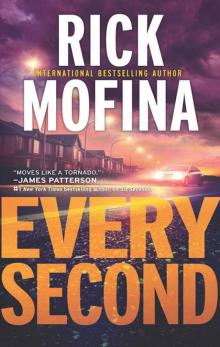 Every Second
Every Second Full Tilt
Full Tilt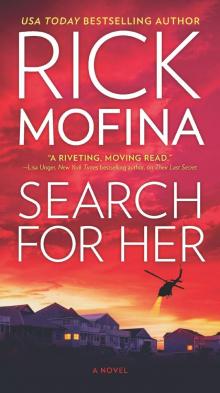 Search for Her
Search for Her The Last Pursuit
The Last Pursuit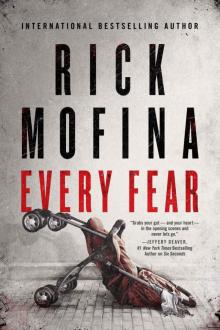 Every Fear
Every Fear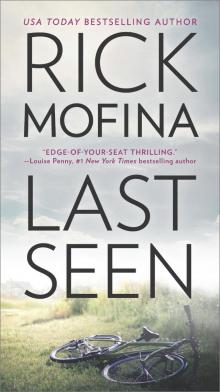 Last Seen
Last Seen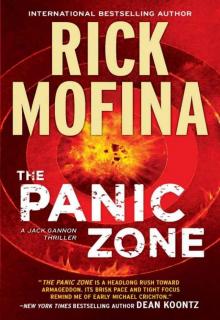 The Panic Zone
The Panic Zone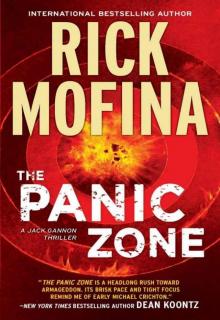 The Panic Zone jg-2
The Panic Zone jg-2 Free Fall
Free Fall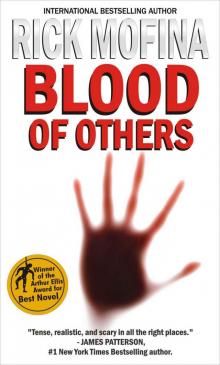 Blood of Others
Blood of Others![[Jason Wade 02.0] Every Fear Read online](http://i1.bookreadfree.com/i1/03/31/jason_wade_02_0_every_fear_preview.jpg) [Jason Wade 02.0] Every Fear
[Jason Wade 02.0] Every Fear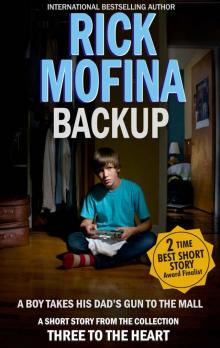 Backup
Backup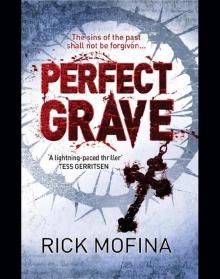 Perfect Grave
Perfect Grave Into the Dark
Into the Dark Whirlwind
Whirlwind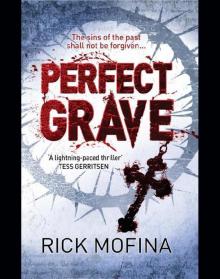 Perfect Grave jw-3
Perfect Grave jw-3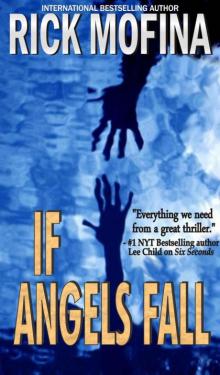 If Angels Fall (tom reed and walt sydowski)
If Angels Fall (tom reed and walt sydowski)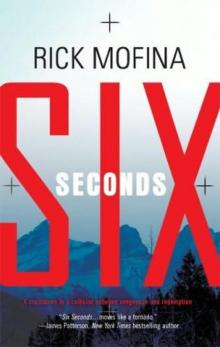 Six Seconds
Six Seconds If Angels Fall
If Angels Fall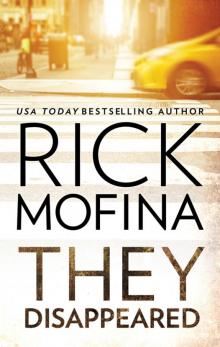 They Disappeared
They Disappeared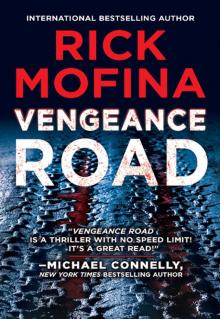 Vengeance Road
Vengeance Road Before Sunrise
Before Sunrise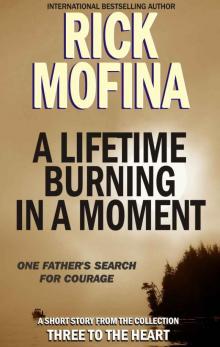 A Lifetime Burning in a Moment
A Lifetime Burning in a Moment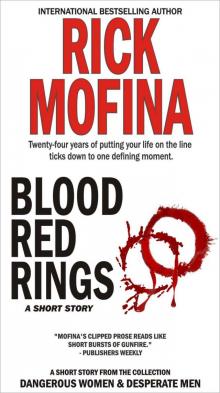 Blood Red Rings (Dangerous Women & Desperate Men)
Blood Red Rings (Dangerous Women & Desperate Men)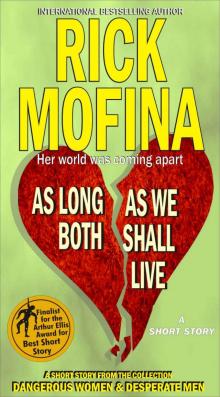 As Long As We Both Shall Live (Dangerous Women & Desperate Men)
As Long As We Both Shall Live (Dangerous Women & Desperate Men)![[Tom Reed and Walt Sydowski 01.0] If Angels Fall Read online](http://i1.bookreadfree.com/i2/04/12/tom_reed_and_walt_sydowski_01_0_if_angels_fall_preview.jpg) [Tom Reed and Walt Sydowski 01.0] If Angels Fall
[Tom Reed and Walt Sydowski 01.0] If Angels Fall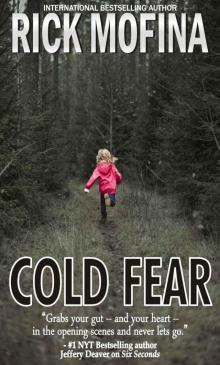 Cold Fear
Cold Fear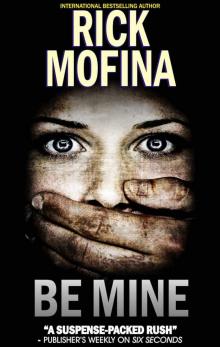 Be Mine
Be Mine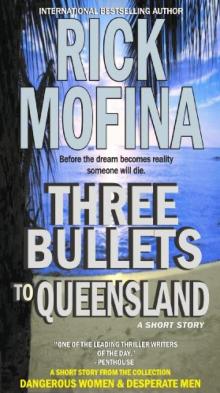 Three Bullets To Queensland
Three Bullets To Queensland